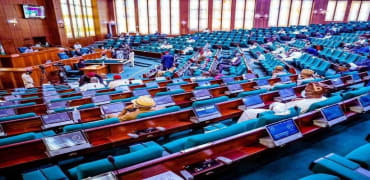Japan’s ₦100 Billion: How This Loan Could Transform Nigeria’s Food Production
Japan’s ₦100 Billion: How This Loan Could Transform Nigeria’s Food Production
By Achimi Muktar
ABUJA—In a significant boost to Nigeria’s agricultural sector, the Federal Government has applauded Japan for providing a ₦100 billion (12 billion Japanese Yen) loan to enhance food production under the National Agricultural Growth Scheme and Agro-Pocket (NAGS-AP).
The loan, facilitated through the Japan International Cooperation Agency (JICA), will focus on three key areas:
✅ Enhancing rice seed quality
✅ Improving farm input delivery and extension services
✅ Encouraging private sector participation in agricultural input production
This was disclosed by the Minister of Agriculture and Food Security, Senator Abubakar Kyari, during a meeting with JICA’s Economic Development Department, led by Director General Takao Shimokawa, in Abuja.
Rice Revolution: The Key to Nigeria’s Food Security?
A major part of the funding will go into a rice seed production project at the National Cereal Research Institute (NCRI), Badeggi, Niger State. This initiative aims to develop high-yield, disease-resistant rice varieties that can withstand Nigeria’s unpredictable climate.
"We will do our part under the technical cooperation with NCRI and the National Agricultural Seed Council (NASC) to add value to the seed ecosystem," Kyari assured.
But beyond better seeds, the minister emphasized the importance of knowledge dissemination. Farmers will not only receive improved inputs but also training on modern agricultural techniques to maximize yields.
Tech-Driven Farming: The Future of Agriculture?
In a bold move, the ministry plans to leverage technology to improve agricultural extension services. Through mobile applications, farmers will get real-time updates on:
📌 Weather patterns
📌 Market prices
📌 Pest outbreaks
This digital transformation will empower farmers to make informed decisions quickly, helping them adapt to challenges and boost productivity.
The Bigger Picture: From Loans to Lasting Impact
Nigeria’s partnership with JICA isn’t new. From 2020 to 2024, JICA’s Smallholder Horticulture Empowerment and Promotion (SHEP) project helped small-scale farmers in 14 states, including Nasarawa, Benue, Osun, Ogun, Kogi, FCT, Taraba, Jigawa, Edo, Anambra, Ebonyi, Cross River, Gombe, and Kebbi.
The initiative bridged the gap between research and practice, equipping farmers with the skills and knowledge needed to thrive. Now, with this fresh funding, the goal is to scale up those successes nationwide.
JICA’s Commitment: More Than Just Money
Speaking at the meeting, JICA’s Director General, Takao Shimokawa, reaffirmed Japan’s commitment to Nigeria’s agricultural transformation.
"Today, I am pleased to announce that the first disbursement of the loan has already been made. We are now moving into the supervision and monitoring phase to ensure proper utilization," Shimokawa said.
JICA’s continued support, he added, aligns perfectly with the Nigerian government’s vision for food security and economic prosperity.
What This Means for Nigerians
With food inflation skyrocketing and insecurity disrupting farming activities, this ₦100 billion injection into Nigeria’s agricultural sector comes at a critical time. If well-executed, the initiative could:
✔ Boost local food production
✔ Reduce reliance on imports
✔ Create jobs in the agricultural value chain
✔ Make food more affordable for millions of Nigerians
The question now is: Will this funding be the game-changer Nigeria desperately needs, or will it get lost in bureaucracy? Only time—and effective implementation—will tell.

















